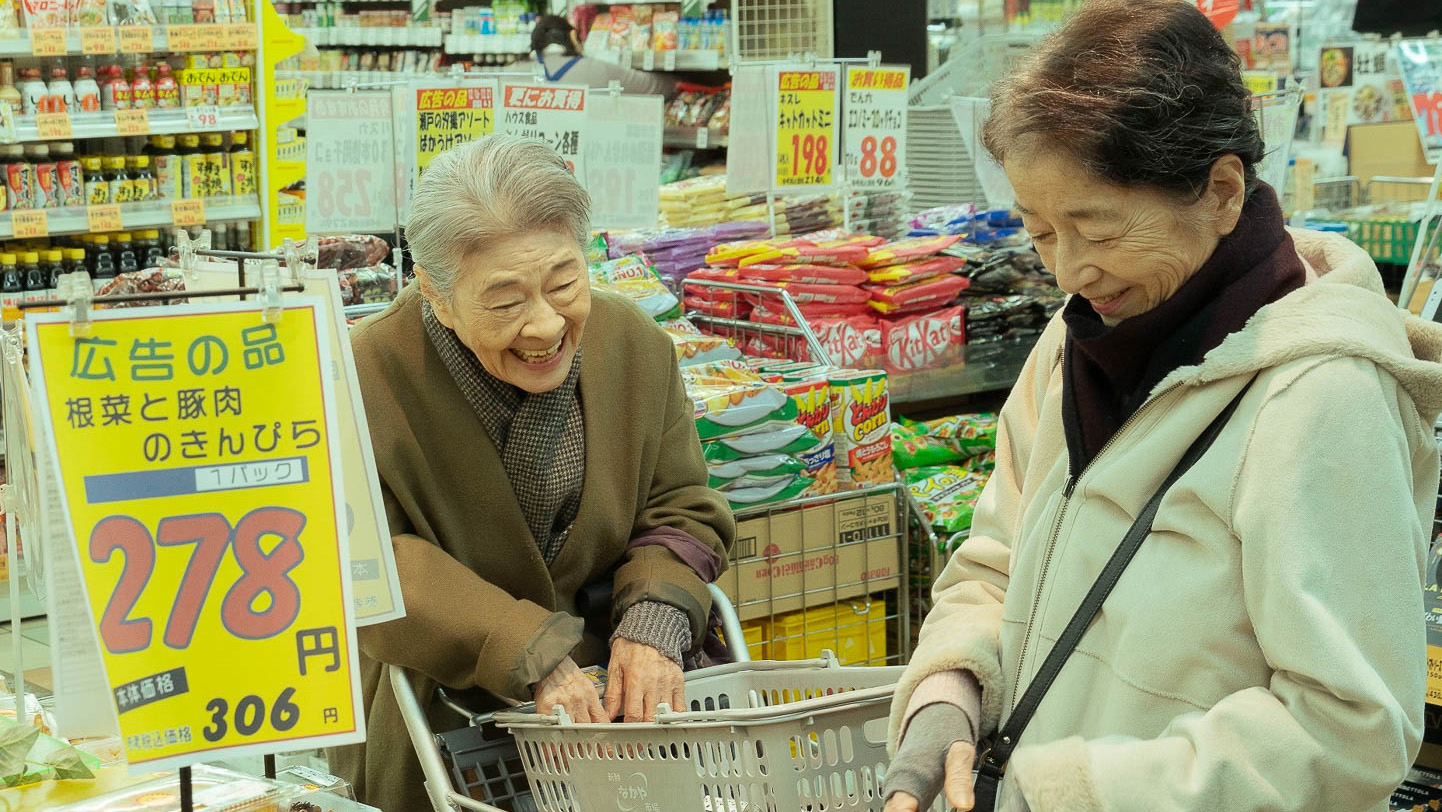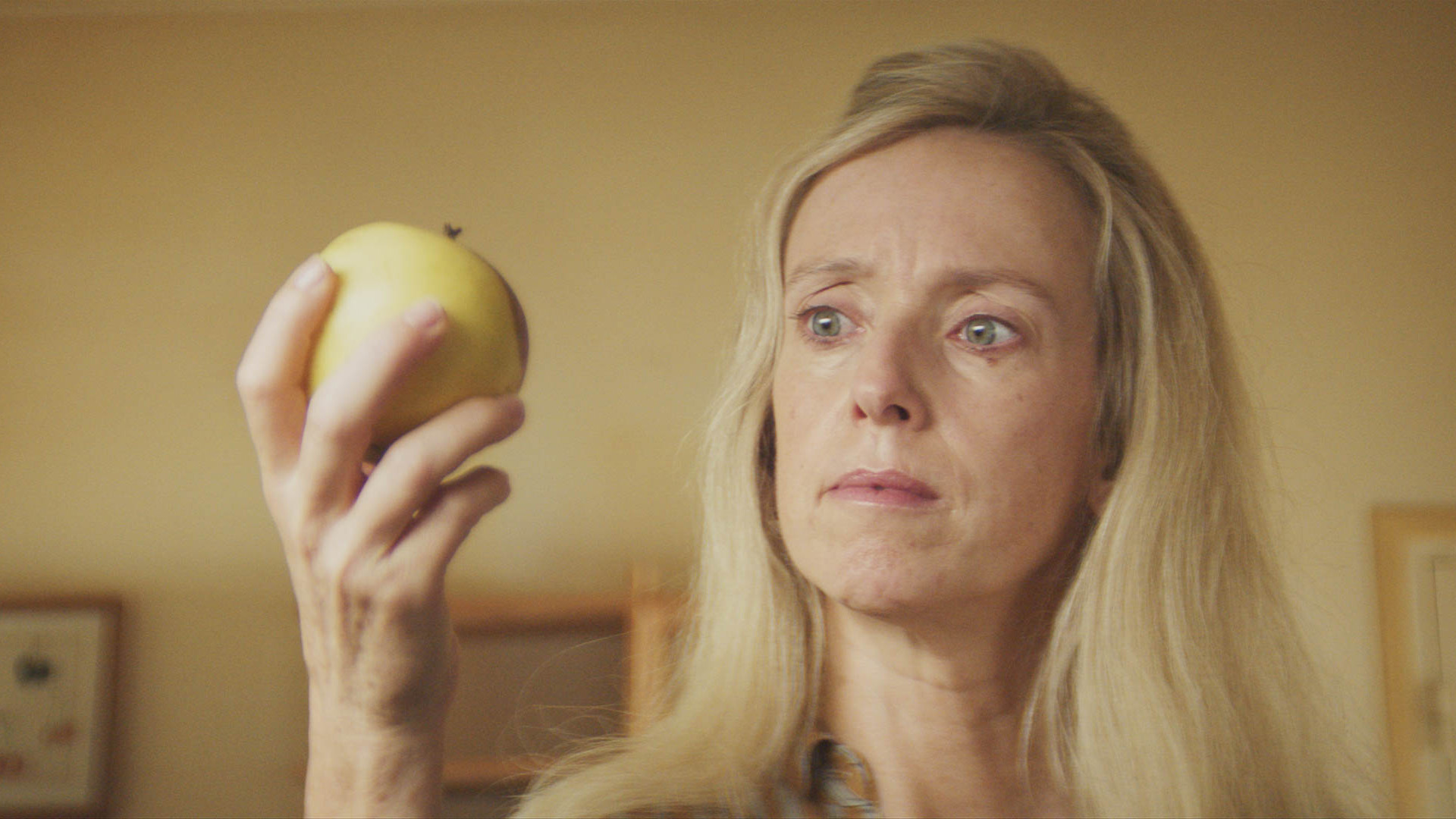Out With the Old: Plan 75, Incredible but True and the Fear of Ageing on Screen

Critics Campus 2022 participant Brooke Heinz explores two MIFF 70 sci-fi films’ distinctly executed yet converging warnings against resisting the course of nature.
Getting older: it’s an unavoidable, often scary fact of life. Aside from the increasing fragility of the body and the mind, there are also societal pressures to contend with – from the practicalities of surviving comfortably in retirement to declining confidence due to ageist stereotyping.
Extracting and heightening these everyday fears of ageing through the lens of science fiction are MIFF 70 selections Plan 75 and Incredible but True. Testifying to the versatility of the genre, these films take polar-opposite approaches in their dissections of ageism.
The premise of Hayakawa Chie’s Plan 75 sounds outlandishly dystopian. In an alternate Japan, citizens aged over 75 are incentivised with a payment equivalent to $1000 to voluntarily end their lives in a bid to slow down the country’s ageing population. Hayakawa’s realist and humanist approach restrains Plan 75 from indulging too heavily in the wild speculation or brutality that its premise may imply. This is encapsulated by Hayakawa’s risky yet sensitively handled choice to reference real-life tragedy.
In 2016, a 26-year-old man killed 19 residents at a disability-care facility where he once worked. He subsequently told police that “it is better that disabled people disappear”. Troubled by how widespread this perspective could be, Hayakawa sets Plan 75’s opening in an aged-care home during a massacre. Instead of showing the grisly details of the act, cinematographer Hideho Urata’s camera observes the aftermath from a distance: there is little blood, and there are no bodies. Lingering, static shots of empty wheelchairs and abandoned walking sticks draw a startling parallel between the violent event, the fictional universe where elderly people are encouraged to disappear and the real-world stigma that casts vulnerable people as burdensome.
Following the opening, Hayakawa turns her attention to three stories exploring different implications of the fictional Plan 75. Of these, the thread anchored on elderly hotel cleaner Michi (Chieko Baisho, Howl’s Moving Castle) is the most relevant to unpacking the ageist structures. Focusing on the minor details of her daily routines – collecting mail, unpacking groceries, eating dinner – Hayakawa builds an intimate understanding of the rhythms of Michi’s life. Shooting these scenes with patience and distance, Hayakawa acknowledges Michi’s solitude at home and imbues it with a sense of tranquillity.
Following a workplace incident, Michi is forced to quit her job due to management’s concerns around her age. Soon after, her home and routines, which by now both the audience and Michi find comfort in, are infiltrated by signs that the uncaring world outside is inescapable, and Plan 75, inevitable. Even small details, like the absence of the usual junk mail in her mailbox, accumulate to build doubt around Michi’s ability to stay connected to society.
Michi’s journey begins to reflect the fears Hayakawa heard from senior Japanese women. As research for her film, Hayakawa interviewed 15 elderly people for their opinions on Plan 75, if it were to exist. To Hayakawa’s surprise, most of them responded positively, citing anxiety around being a burden on their family or, if childless, having no financial security. In addition to what she sees as insufficient support from the government, Hayakawa also points out the role of cultural mores in facilitating such callous conditions. “In Japanese culture, we are so bound by this idea that you should not trouble other people and that doing so is very inappropriate and shameful,” Hayakawa told the Hollywood Reporter. “I wanted this film to wake the audience up and remind them to have empathy.”
The empathy that Hayakawa hopes to inspire, especially in youth, shines through as Michi reaches her lowest point. As the elderly woman forges an unlikely connection with a young Plan 75 counsellor, Hayakawa’s visually poetic, sympathetic storytelling becomes more quietly optimistic. The pop of bright green soda Michi enjoys on an outing with her new friend, sunlight peeking from behind grey clouds, and streetlights cutting through the dark interior of a tunnel – with these simple images, Hayakawa highlights the simple pleasures and fleeting moments of joy at all stages of life.

Above: Incredible but True | Header: Plan 75
In stark contrast to Plan 75 is French filmmaker Quentin Dupieux’s absurd comedy Incredible but True. Middle-aged couple Marie (Léa Drucker, War of the Worlds) and Alain (Alain Chabat, The Science of Sleep) discover a tunnel that makes anyone who passes through three days younger. Alain’s boss Gérard (Benoît Magimel, The Piano Teacher) also experiments with physical revitalisation by getting an electronic penis.
Dupieux uses the hypothetical potential of science fiction to skewer gendered conceptions of the ‘mid-life crisis’ and how it relates to ego and insecurity. Marie becomes addicted to de-ageing herself so she can pursue her shelved dream of modelling. With no subtlety around how trapped Marie is by her vanity, Dupieux frames her every exit from the tunnel through a reflection in a mirror, in which she meticulously pores over every new sign of youth.
Meanwhile, despite his advanced “NASA dick”, as he calls it, Gérard’s fragile masculinity torments him as he frets over whether his colleagues are impressed enough. Even with their bodies transformed and consummate, the internalisation of ageism and sexism creates an unwinnable situation for Marie and Gérard – one in which being satisfied is less possible than actual time travel.
Dupieux condenses nearly all of his film’s third act into a series of wordless montages, at times hastened with sped-up footage, showing the less-than-ideal consequences and misled expectations of what being younger means. The irony of Dupieux fast-forwarding through the failures of his characters who so desperately want to hold onto time makes clear his low opinion of trying to resist nature’s course. As for Alain, who has no desire to turn back time for himself, life simply continues on, and maybe that’s for the best.
Hayakawa and Dupieux take very different paths – and create very different cinematic experiences – when it comes to interrogating the pressures of getting older. The contemplative Plan 75 casts criticism on the societal structures that force the elderly into insecurity, while Incredible but True mocks those who conflate their self-worth with youth. Yet, despite their differences, both films reach a common conclusion: it’s futile to fear ageing and the pitfalls that it can bring.